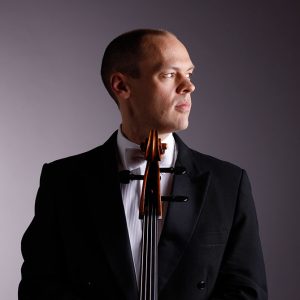
Doing More with Less
Brant Taylor
I recently had the opportunity to travel to Havana, Cuba, accompanying a jazz band that was invited to perform at the Havana International Jazz Festival. Considered a “cultural exchange,” the trip was approved by the U. S. Department of the Treasury and we made the short flight to Havana from Miami. (Because our embargo is a financial one, the U.S. Treasury oversees all travel between the U.S. and Cuba. A full report on my impressions of Havana or on the 50 years of economic strangulation the Cuban people have experienced is far outside the scope and purpose of this space!)
Among many other activities, we visited Havana’s Amadeo Roldan Conservatory, which teaches music to high school students. While I am aware that Cuba has a vibrant, colorful musical tradition and history, my expectations didn’t prepare me for what I heard at the conservatory. The visit took the form of an informal performance—Cuban conservatory students played jazz in various small ensembles for our American band, and vice versa.
In their second-floor auditorium, the windows were thrown wide open. Sunlight, breeze, and street sounds mingled with music coming from practice rooms. As the first group of young Cubans took up their instruments—a trio of saxophone, upright bass, and drums—I noted that the bass looked very well-worn and reminded myself that the saxophone is not exactly my Favorite Sound On Earth. They were breathtaking. Listening like experienced chamber musicians, they played with a sophistication and poise that one generally expects only from experienced professionals. Their intense seriousness of purpose was tempered with joy as they relished interacting with each other and with the audience. These three were soon joined by a show-stealing pianist who looked to be about 15 years old and a trumpet player with a mature, soulful sound that I’ve rarely heard in so young a musician.
The experience gave me several things to ponder.
I expect that these young people, like most Cubans, live frugal, simple home lives with their families. It is abundantly clear that music is their consuming passion, and perhaps some of them hope it may be their ticket out of a modest past without material frills into a successful future. By contrast, most American teenagers I know seem to be trying to become as well-rounded as possible, bouncing from sports practice to music lessons to community service projects to chess club to standardized test prep in an effort to be able to put it all down on a college admission application when the time comes. Is meaningful focus in a single area of discipline becoming more difficult for pre-college Americans? While nobody can deny that having varied and versatile skills plays a role in 21st century life, is aiming to be passably proficient in several areas better than aiming to be truly first-class at one thing?
Tellingly, once the young Cubans began playing, I stopped noticing their instruments. They were all a little beat-up and likely way overdue for a trip to the repair shop—if there is one in Havana that anyone could afford. But it just didn’t matter. This makes me slightly embarrassed to recall conversations I had in college with my peers, the essence of which was that if we could somehow just get our hands on amazing instruments and bows, we’d be All Set For Greatness.
The Cuban system of musical study draws few if any boundaries among different musical styles. Every student at the conservatory studies classical music alongside jazz and other music native to Cuba. They seem to find distinctions unnecessary and don’t see why Americans keep the respective studies of these styles separate—or even why we use terms like “classical.” How many of us have ever wished that improvisation was a part of our music education? How much easier would classical theory be if we all had some knowledge of the basic chord structures in jazz?
One thing this visit made abundantly clear is how far desire and focused hard work (and, presumably, dedicated teaching) will carry someone who wants to achieve a high level in musical study. The quality of one’s equipment and relative youth need not be the barriers to mature artistry that we might assume. These inspiring Cuban students are doing it anyway, and with little other than their passionate dedication to music.
Subjects: Artistic Vision
Tags: activities, Airplanes, assumptions, audiences, bows, Brant, culture, ensembles, focus, interactions, jazz, opportunity, passion, perspective, Sound, Taylor, Travel, youth
